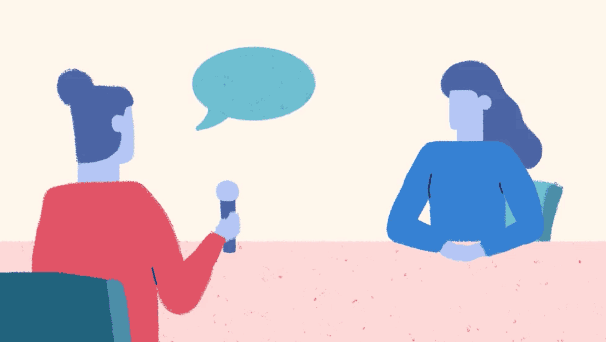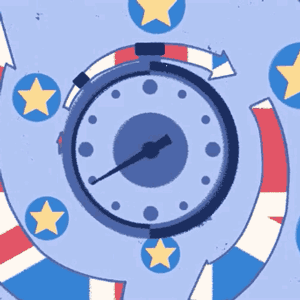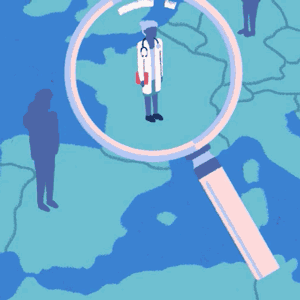Brexit Testimonies
Jim in Brussels
"I can’t say the absence of informed debate (or even the outrageous untruths) were a complete surprise, but I must admit that the result itself was stomach-wrenching. It was life-changing."
I work for the European Parliament. My role there is close to, but not within, the senior management. So my viewpoint is biased and represents a vested interest of a sort, but you can take it to be worth what it’s worth anyway. I’m the sort of person who reminds you at parties that the UK is actually in Europe, and that “Brussels decided” actually means “we decided in conjunction with our neighbours.”
I was born in the UK, to British parents, but I have spent sufficient time outside the country to be entitled to apply for an additional nationality, which I will do when the time is right. On a personal level, this should ease the Brexit jitters and stave off the fears of a worst-case scenario: dismissal from the institutions after the UK leaves. There will be clear consequences for my career in a political institution, regardless of my adopted nationality, but I will be able to rely on having a job. That’s what counts for my family. It may well be the case for those British officials without a fallback nationality as well, but I prefer to be on the safe side.
Before the Referendum
The British have always been well-respected in Brussels. The quality of our education, healthcare and legal system, but also the more general pragmatic quality to our philosophical and political history. It was always a pleasant thing as a Briton to travel Europe and meet admirers of your country.
Looking back, though, there has long been a pool of dissatisfaction with Europe among Britons. At times, it has been a fringe bitterness lurking outside the mainstream, and at others - most recently - it has gained sufficient traction among charismatic opinion-makers to be sold as more than what it is. Particularly with strong financial and media backing.
What I have witnessed from the outside over the last few years, is that Euroscepticism has gained currency to the point where most of Britain’s ailments are put down to its membership of the EU. Those who have lost jobs or seen wages decline are told that freedom of movement is to blame. Those who worry about the UK deficit are fed spurious figures about spending on the EU budget, not to mention mostly fictional stories about the auditing of accounts. For decades, governments have used Brussels as the vanquished beast when bringing a good deal back from a summit, or as the scapegoat disciplinarian for the tough choices they signed up to after an all-night discussion.
I’m all for healthy criticism of a political programme, but the EU has had very few public backers in Britain, and the results are clear to see. Only now are people learning what the Single Market is, and what the fundamental freedoms actually entail.
The Referendum
When the referendum was called, I hoped there would be informed debate, after which the question would be put to bed for a generation at least. I was complacent, as were many in the European Institutions - I know that now. I was also annoyed at not having a vote anymore, despite being a clear stakeholder in the outcome, but apart from online petitions there was nothing to be done on that front. I can’t say the absence of informed debate (or even the outrageous untruths) were a complete surprise, but I must admit that the result itself was stomach-wrenching. It was life-changing. The UK had voted to leave.
It shocked me, not just because of the practical consequences of the result, but that in my mind so many people preferred to take the Alf Garnett perspective than to embrace difference. I had seriously misinterpreted my own country, either by being in an echo chamber or by misreading the signs along the way.
All we heard about in the weeks and months that followed was the “best deal for Britain”, as if no-one cared about the continent’s wellbeing anymore. The spirit of community which genuinely runs through the sectoral cooperation initiatives was completely lost from sight. Even on a more mercenary level, economies of scale should have been a factor - doing things harmoniously rather than in 28 separate systems.
We went from allies sitting round the same table to poker players overnight. Worse still, there were occasional flashes of animosity in the press which can’t be smoothed over as easily from outside the club.
I was annoyed - the project to which I’d dedicated most of my professional life was now deemed uninviting by most of the British people who took the trouble to vote. There was talk of a register of foreigners and stories were appearing of settled academics being asked to leave (mistakenly, as it turned out), and suddenly I felt that the twenty-first century had taken a dark plunge into the past.
Now
A year on, the immediate shock and anger has passed, and nominated negotiators have settled down to what appears to be a Herculean task. I hope that the solution found for EU citizens in the UK is good (they prop up so much in our economy, and they have to weather the adverse press more than most), and also for my countrymen and women around the rest of Europe.
On a personal level, it won’t be as catastrophic as I’d once considered in the institutions. British officials may not be appointed to higher functions in the institutions or recruited into the staff anymore, but it also seems unlikely that they will be asked to resign, which is something to hang on to. I hope the UK remains strong and influential, but I suspect that its success in doing so will depend more on the decisions taken by governments over the next ten to fifteen years than by the simple act of negotiating an exit deal.
The Future
I am glad that my children are dual nationals, so that they will be able to do Erasmus and study abroad without limitations. I’m glad that I will have the possibility to continue to work for a set of institutions, which, although far from perfect (as we are told every ten minutes by the British media), are founded on the principle that working together is better than deciding on one’s own interests in isolation. I don’t hope that Brexit is reversed without any political mandate, but I do hope that efforts are made to find out what the British people actually want, how much of that is achievable, and that any changes in public opinion are smoothly and effectively reflected, as should always be the intention of a democratic country.

I have long since given up trying to articulate a simple answer to the question; 'why are the British doing what they are doing?
Read Dave's Brexit testimony
 Timeline
Timeline Testimonies
Testimonies
 Mythbusters
Mythbusters
